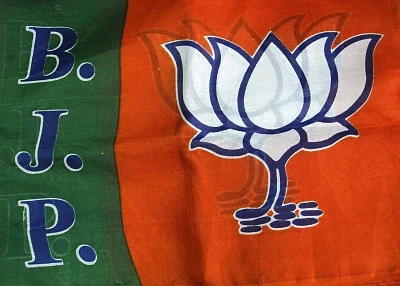By Aroonim Bhuyan
New Delhi, Jan 12 (IANS) With at least three members named to a committee formed by the government to implement Clause 6 of the Assam Accord refusing to serve in the face of the controversy over the Citizenship (Amendment) Bill 2016, the BJP on Saturday asked them to reconsider their decision logically.
"The BJP would like to request these eminent members to reconsider their decision not to be part of the committee logically, rather than emotionally," Assam BJP spokesperson Rupam Goswami told IANS here.
"Clause 6 is a necessity for protecting the rights of the indigenous people of Assam," Goswami said.
Goswami stressed that while the Citizenship (Amendment) Bill is effective nationally, the Assam Accord is confined only to Assam, which is why implementing its Clause 6 is necessary.
A day before the Joint Parliamentary Committee (JPC) tabled its report on the Citizenship (Amendment) Bill on January 7, the government announced the formation of a high-powered committee as approved by the Union Cabinet for implementing Clause 6 that seeks to protect the rights and culture of the state's indigenous people.
Seven eminent persons from Assam were named for the committee - M.P. Bezbaruah (Chairman) and Subhhash Das, both former IAS officer; Founder-Editor of The Sentinel newspaper Dhirendra Nath Bezboruah; two former Axom Xahitya Xabha Presidents Nagen Saikia and Rongbong Terang; Educationist Mukunda Rajbonghsi and Assam Advocate General Ramesh Borpatrogohain.
The high-powered committee also included a joint secretary from the Union Home Ministry and a representative from the AASU.
However, Saikia, Rajbongshi and Terang, as also the AASU representative, have declined to be part of the committee in view of the Lok Sabha passing the Citizenship (Amendment) Bill on Tuesday.
"The Clause 6 committee is cabinet-constituted committee and not a bill. So, once the government changes at the Centre, the recommendation of the committee will not mean anything. Earlier, I thought I will participate in the committee and give some recommendations for the protection of the indigenous people," Saikia said on Thursday.
"I think by keeping this committee in front, the government wants the Citizenship Bill to be passed," he said.
"When AASU, which was a signatory to the Assam Accord, has refused to be a part of the committee, there is no question that I should be a part," said Terang.
Following this, M.P. Bezbaruah has written to the Home Ministry stating that he does not want to chair a committee that is "defunct" following the refusal of three members to join it.
Clause 6 of the Assam Accord seeks to provide constitutional, legislative and administrative measures to protect, preserve and promote the cultural, social, linguistic identity and heritage of Assam's indigenous communities.
Basically, it means reservation of electoral seats, land and political rights, rights to natural resources and protection of culture and heritage of the indigenous Assamese people.
However, with the Lok Sabha passing the Citizenship (Amendment) Bill, questions have arisen about the viability of implementing Clause 6 since this will affect Clause 5 of the Accord.
According to Clause 5, only those people who came to Assam till March 24, 1971, will be accepted as Indian citizens.
Clause 5 states: "Foreigners who came to Assam on or after March 25, 1971, shall continue to be detected, deleted and expelled in accordance with law. Immediate and practical steps shall be taken to expel such foreigners."
This means all illegal migrants irrespective of religion will be detected, deleted from the voters list and expelled.
However, the Citizenship (Amendment) Bill seeks to make an exception to this by bringing in religion to give refuge to illegal infiltrators.
According to the Bill, people belonging to six minority communities - Hindus, Sikhs, Jains, Buddhists, Parsis and Christians - from Afghanistan, Bangladesh and Pakistan, facing religious persecution, will be given citizenship in India.
Muslim refugees are not covered by the Bill.
(Aroonim Bhuyan can be contacted at aroonim.b@ians.in)
--IANS
ab/vm
(This story was auto-published from a syndicated feed. No part of the story has been edited by The Quint.)
